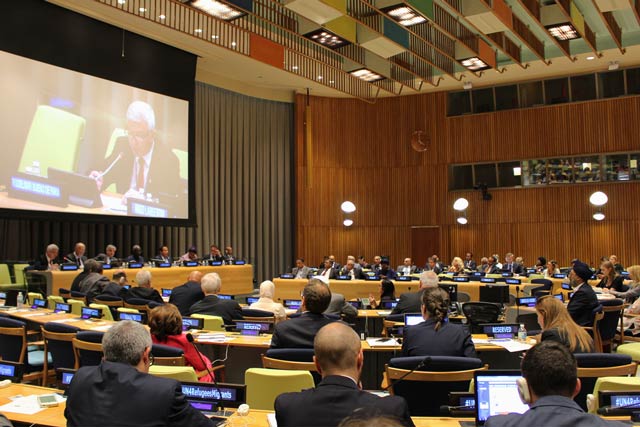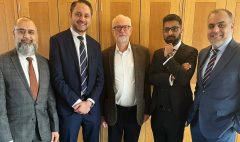Faith-based organizations can help solve problems of forced migration, say experts at UN
October 9, 2016 2023-08-19 15:33Faith-based organizations can help solve problems of forced migration, say experts at UN

Faith-based organizations can help solve problems of forced migration, say experts at UN
Faith-based organizations and religious leaders must be included in efforts to address the challenges of human trafficking and forced migration, representatives of the United Nations, international organizations, Member States and civil society have said. They met on 23 September in New York after the landmark United Nations Summit on Refugees and Migrants and the Leaders’ Summit on Refugees.
“In many cases, migrants and refugees are seeking to escape situations of violence and grave human rights violations that in some cases may amount to atrocity crimes, by which I mean genocide, war crimes and crimes against humanity”, stated Adama Dieng, Special Adviser to the United Nations Secretary-General on the Prevention of Genocide.
The UN along with the United Nations Inter-Agency Task Force on Religion and Development, the World Council of Churches (WCC) and the International Dialogue Centre (KAICIID) organized the event…
Speakers were unanimous in their call for religious leaders to be included in addressing not only the symptoms, but also the root causes of forced migration and human trafficking, from the point of departure, to assisting with integration into their host countries at the points of destination.
“Religious leaders know their communities. They have access to the people. They are trusted and respected by their communities and are already working to save and improve lives where they are most needed. Through their example and guidance, communities can combat prejudice, support integration and build peace,” said Faisal Bin Muaammar, Secretary General of the International Dialogue Centre. Rudelmar Bueno de Faria, the WCC Representative to the United Nations, stressed that “especially from a faith based perspective, from which human dignity is a key concept and commitment, we are obliged to address the entire experience.”
Source: The World Council of Churches








